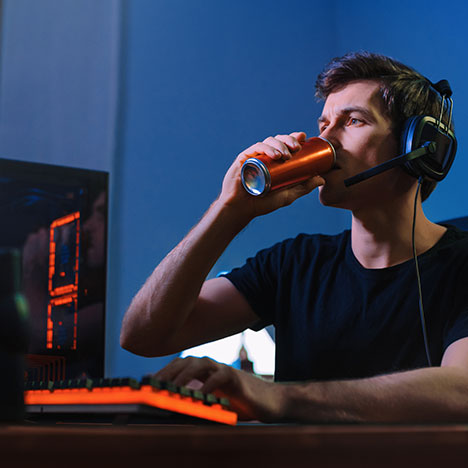Can Energy Drinks Lead to Car Accidents?
Yes, they can. Each year roughly 10,000 people are killed in drunk driving accidents and many more are injured. More than 1 million people are arrested each year for driving while under the influence. While driving while intoxicated is a problem that affects all age groups, it is significant issue with younger drivers: 34% of drivers involved in fatal driving while intoxicated accidents are between the ages of 21 and 24 and 30% are between the ages of 25 and 34. Unfortunately, a recent trend in energy drink consumption may contribute to even more DWI deaths and injuries.
If you have been injured in a car accident and suspect that consumption of alcohol and/or energy drinks has been the cause, you should seek the knowledge of an alcohol or energy drink injury lawyer like those at Avrek Law to further discuss your case.
The Rise of Energy Drink Consumption
Energy drinks, created by market leaders such as Red Bull, Monster and Rockstar, have exploded in popularity over the last decades and young people (from teens to young adults) are the biggest consumers. According to the American Heart Association, the energy drink market value is predicted to reach $61 billion by 2021.
Energy drinks have traditionally been marketed and sold as non-alcoholic beverages, and are often promoted as supplements that can boost performance and cognition. Their main appeal is that they provide a burst of energy to help people stay awake and focused. The “burst of energy” comes from many additives, including sugar, and significantly contains more caffeine than coffee or tea.
The latest trend in the energy drink sector is mixing energy drinks with alcohol, however, this combination has proven to have lethal effects. According to the U.S. Food and Drug Administration (FDA), when caffeine is mixed with alcohol some of the sensory cues that alert drinkers of their level of intoxication are masked. Thus, drinkers sometimes feel less intoxicated than they actually are; this may lead some to feel that they are fit to drive when they are not.
Has anyone died from energy drinks? According to the Food and Drug Administration, there have been 34 deaths related to energy drinks alone, warranting investigation into the safety of these beverages.
Alcoholic Energy Drink and Car Accidents

Over the past four years, the alcoholic energy drink, Four Loko has been linked to several energy drinks and alcohol deaths and injuries. One can of Four Loko contains as much alcohol as three to four beers, as much caffeine as two to three cups of coffee, and it is marketed to energy-drink loving young people. In 2010, 14-year old Valeria Rodriguez was killed in a car accident. Rodriquez’s 14-year old boyfriend was charged with intoxication manslaughter and admits to have consumed Four Loko. In 2012, a 22-year old man killed 3 people when he ran a red light traveling 80 mph. The 22-year old was intoxicated, having consumed Four Loko and gin, and smoked marijuana. In August 2012, a 33-year old Whidbey Island man, who was intoxicated from drinking Four Loko, was seriously injured in a three car accident.
In addition to car accident deaths, alcoholic energy drinks have been linked to young people becoming ill. For example, at Central Washington University several students ended up in the hospital after consuming Four Loko.
Backlash Against Alcoholic Energy Drinks
Due to the health risks associated with alcoholic energy drinks, several colleges have banned it from campus and a number of states have banned its sale. In 2009, the FDA issued a warning letter to the manufacturer of Four Loko, and manufacturers of other alcoholic energy drinks, stating that they are unsafe in their present form. While maintaining that Four Loko is safe, its manufacturer voluntarily reformulated Four Loko to remove the caffeine. However, even without the caffeine, because of its history and bright packaging, it remains popular with young people as an alcoholic beverage.
At least one energy drink manufacturer has found a way of taking advantage of the popularity of the caffeine-alcohol combination without offering an alcoholic energy drink. AeroLife is an inhaler that delivers 100mg of caffeine to the user. While it does not contain alcohol, it has become popular among young people as a way to stay awake and drink alcohol. Thus, AeroLife users often pair it with alcohol.
Banning Energy Drinks and Alcohol Combo Is Not Enough
While it is good that alcoholic energy drinks are no longer readily available to consumers, this may not have a significant effect on the number of car accident deaths related to the pairing of caffeine with alcohol. While alcoholic energy drinks are no longer on the market, it is quite easy to pair alcohol with caffeine without the combination being sold in a can.
If you have been involved in an accident that was potentially caused by the other driver consuming energy drinks and alcohol together, speak to a knowledgeable energy drink injury attorney to discuss your course of action. With more than 50 years of combined experience, Avrek has recovered Over $2 Billion in compensation for injury victims in over 45,000 cases. We’re here to help you get the compensation you deserve – view our locations, or contact us for a free consultation to learn more!
